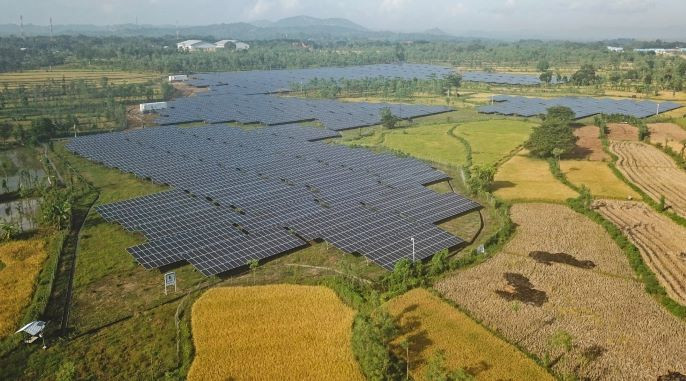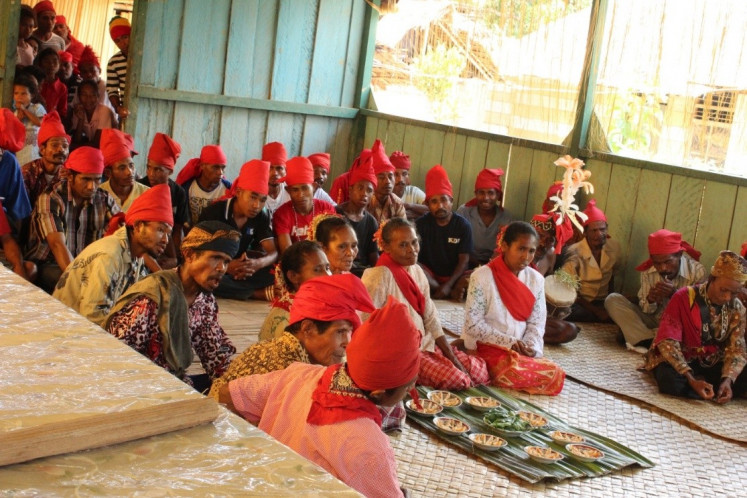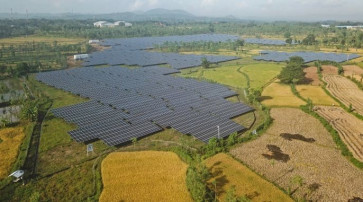Popular Reads
Top Results
Can't find what you're looking for?
View all search resultsPopular Reads
Top Results
Can't find what you're looking for?
View all search resultsDo not hijack the renewable energy bill
Coming up with a blanket term like “new energy” for old technologies or certain types of fossil energy not only deprives the renewable energy bill of its intended purpose, but also diminishes Indonesia’s global leadership quality.
Change text size
Gift Premium Articles
to Anyone

The energy transition is one of the most important global issues today, especially since last year’s United Nations climate conference (COP26), which asserted that all countries should reduce their carbon emission now or risk never achieving the Paris Agreement’s target.
According to the World Resources Institute (WRI), which lists Indonesia as one of the world’s top 10 biggest emissions contributors, the energy sector contributes more than 70 percent of total global emissions so it should be prioritized to address the climate crisis. Carbon Brief ranks Indonesia among the top five global emitters, and data from the Environment and Forestry Ministry show that more than half of country's carbon emissions, or 58 percent, is projected to come from the energy sector in 2030.
It is critically urgent that Indonesia prioritizes the energy transition to renewable energy in the national agenda, as the country is still heavily dependent on fossil fuels, especially for electricity generation, according to PLN’s 2021-2030 business plan.
Besides environmental considerations, the energy transition is a must to achieve energy security and inclusive energy access. Indonesia and the world will be haunted by an energy crisis involving scarcity, high prices and price volatility if it continues to depend on fossil fuels, such as coal, oil and gas.
We have learned a lot from the impacts of the Russia-Ukraine war. Fossil fuels are becoming more expensive and their supply has become uncertain, while renewable energy like solar is abundant and their production continues to be cheaper. Once an oil exporter, Indonesia has spent a lot of money on importing oil. It is a matter of time before it will end up doing the same with gas and coal.
Indonesia has positioned sustainable energy transition as one of the three pillars of its G20 presidency this year, along with global health architecture and digital transformation. Domestically, the government is now trying to push the energy transition, as our renewable energy mix currently reaches just 11.2 percent, or less than half of the 2025 target of 23 percent, according to the energy ministry.
One measure to accelerate the energy transition is by formulating and passing a new renewable energy bill before the G20 Bali Summit, which could then also be an occasion for the government to announce its progress and thereby present Indonesia's leadership in promoting the energy transition among G20 countries.



















